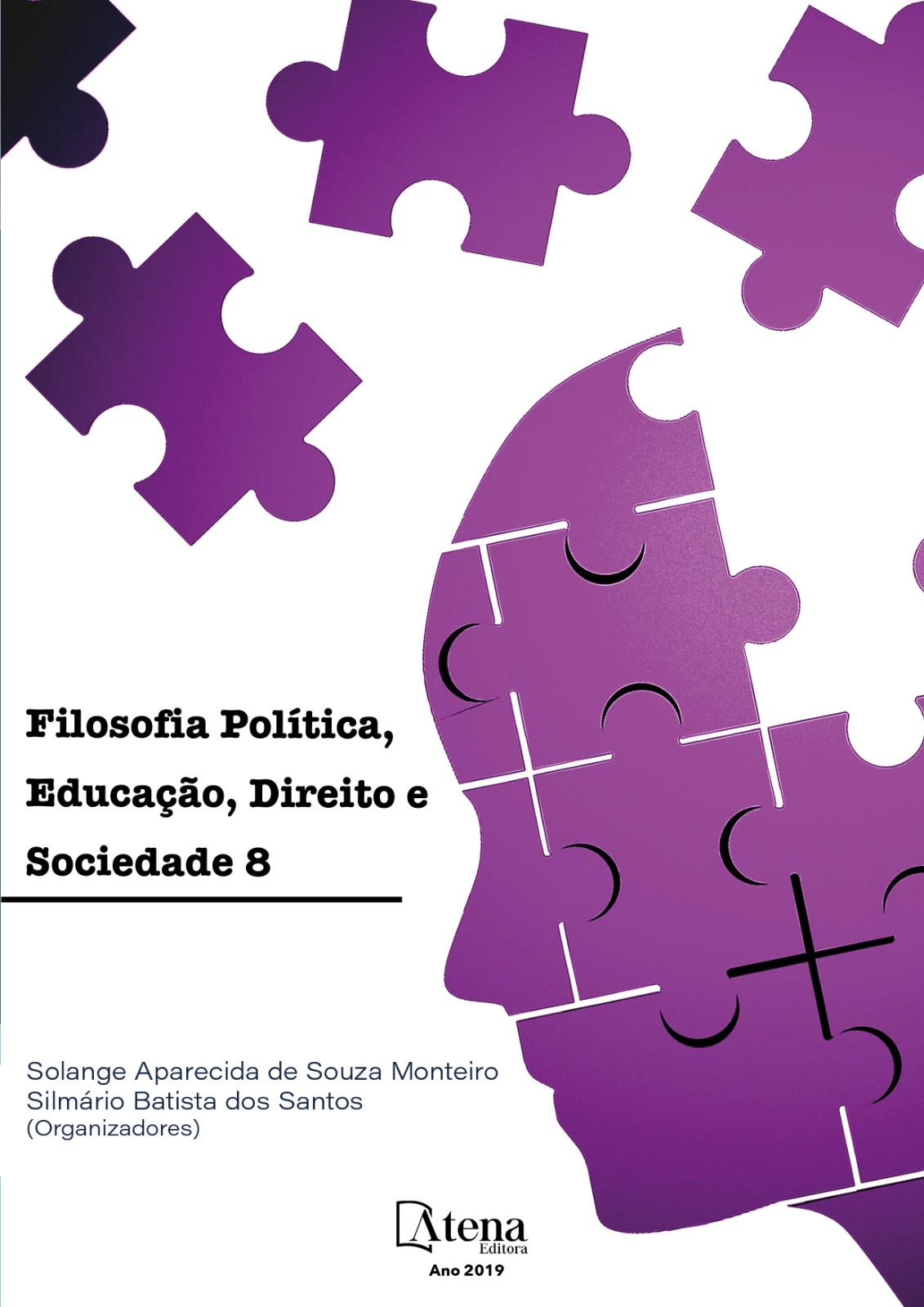
PENSAR, MOTIVAR E CRIAR COM A DIFERENÇA: CINEMA, ESCOLA E ALTERIDADE
Atualmente, vivenciamos um cenário
em nosso país que aponta para reformas
políticas, trabalhistas e educacionais que por
diversas vezes não favorecem o exercício da
cidadania dos indivíduos, nem a manifestação
de subjetividades e nem mesmo a emancipação
intelectual dos mesmos. Diante disto, a escola
ainda surge como espaço público e potente para
a manifestação da igualdade de inteligências,
partindo do pressuposto de que o processo
de emancipação é tanto pedagógico quanto
político, por meio das relações irrompidas a
todo tempo no espaço escolar (RANCIÈRE,
2002). A prática docente que aqui se apresenta
visa retratar a potencialidade que emerge ao
utilizar a linguagem cinematográfica como
uma proposta de alteridade em busca da
emancipação intelectual de nossos alunos.
Para isto, a prática retratada encontra-se
em desenvolvimento em uma escola pública
da periferia da Cidade de Nova Iguaçu,
onde as atividades abordadas privilegiam
a discussão/reflexão e o compartilhamento
de saberes para todos/as interessados/as
em oportunizar o contato com o cinema e as
variadas manifestações de subjetividades
presentes na sociedade, independentemente
de qualquer experiência prévia com as
técnicas cinematográficas ou com a linguagem
audiovisual. Considerando a arte como um
elemento causador de estranhamentos, ela
não é pensada fora da experiência do “fazer”
e, sendo assim o projeto Pensar, motivar e criar
com a diferença privilegia, além da exibição de
filmes e da reflexão, a produção de cinema na
escola por parte dos alunos, possibilitando um
espaço de discussão e criação permanente
dentro da escola. As atividades são construídas
sob o ponto de vista de autores como Bergala
(2008); Rancière (2002); Fresquet (2013);
Migliorin (2015), Larrosa (2016); que discutem
como a presença do cinema na escola pode
tencionar a própria arte e estar à altura das
experiências sensíveis dos alunos, priorizando
o desenvolvimento do olhar cinematográfico
por meio da possibilidade que o cinema tem de
tornar comum o que não nos pertence, ou seja,
o desvelar do objeto, do outro e da vida e é nesta
perspectiva que se torna relevante o despertar
que emancipa para o conhecimento do mundo
(BERGALA, 2008). Desta forma, consideramos
a experiência com o cinema como uma proposta
de nos conectarmos com o outro e com o
mundo ao nosso redor. Por meio do cinema,
podemos ter uma experiência singular e intensa
com o mundo, uma experiência que é a própria
invenção e transformação do mundo em que
vivemos. Assim, fazer cinema na escola apresenta um sentido amplo de multiplicação
de olhares, onde os saberes são construídos em rede e as manifestações de um
indivíduo refletem e podem ser afetadas pelas ações e percepções do outro.
PENSAR, MOTIVAR E CRIAR COM A DIFERENÇA: CINEMA, ESCOLA E ALTERIDADE
-
DOI: 10.22533/at.ed.01519040218
-
Palavras-chave: Cinema; Escola; Emancipação;
-
Keywords: Cinema; School; Emancipation;
-
Abstract:
Currently, we are living a scenario in our country that points to political,
labor and educational reforms that on several occasions do not favor the exercise
of citizenship of individuals, nor the manifestation of subjectivities and even the
intellectual emancipation of them. Faced with this, the school still emerges as a public
space and powerful for the manifestation of the equality of intelligences, starting from
the assumption that the process of emancipation is both pedagogical and political,
through the relations that are constantly broken in the school space (RANCIÈRE,
2002). The teaching practice presented here aims to portray the potentiality that
emerges when using cinematographic language as a proposal of alterity in search of
the intellectual emancipation of our students. For this, the practice is being developed
in a public school in the outskirts of the City of Nova Iguaçu, where the activities
are focused on the discussion / reflection and the sharing of knowledge for all those
interested in opportunizing contact with the cinema and the various manifestations
of subjectivities present in society, independently of any previous experience with
cinematographic techniques or with the audiovisual language. Considering art as a
cause of estrangement, it is not thought out of the experience of “doing”, and thus the
project Thinking, motivating and creating with difference privileges, in addition to the
exhibition of films and reflection, film production in the school by the students, allowing
a space for discussion and permanent creation within the school. The activities are built
from the point of view of authors such as Bergala (2008); Rancière (2002); Fresquet
(2013); Migliorin (2015), Larrosa (2016); who discuss how the presence of cinema in the
school can aim at the art itself and be up to the sensitive experiences of the students,
prioritizing the development of the cinematographic look through the possibility that the
cinema has to make common what does not belong to us, the unveiling of the object,
the other and life and it is in this perspective that the awakening that emancipates for the
knowledge of the world becomes relevant (BERGALA, 2008). In this way, we consider
the experience with the cinema as a proposal to connect with the other and with the
world around us. Through cinema, we can have a singular and intense experience with
the world, an experience that is the very invention and transformation of the world in
which we live. Thus, filmmaking in school presents a broad sense of multiplying looks,
where knowledge is networked and the manifestations of one individual reflect and can
be affected by the actions and perceptions of the other.
-
Número de páginas: 15
- Andréa Casadonte


